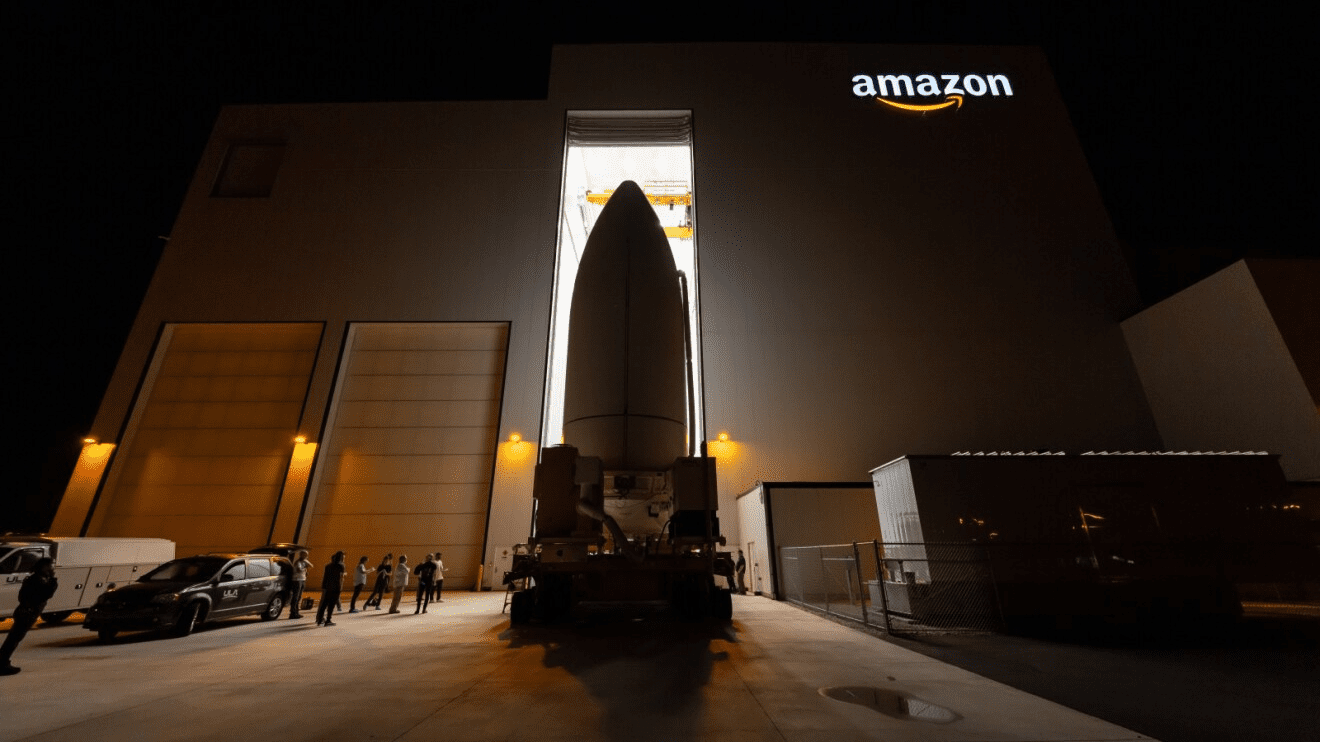- Amazon has scheduled the launch of its Kuiper Atlas 1 mission for 9th April.
- This will see a United Launch Alliance Atlas V rocket transporting 27 Project Kuiper satellites to orbit.
- This is the first in a long series of launches planned by Amazon to make its satellite internet play a reality.
Around two years ago Amazon announced Project Kuiper. This project would see the big tech firm launching satellites into orbit with a view to providing internet connectivity to any region in the world.
After many tests, Project Kuiper’s first full launch is scheduled for next week, 9th April, as part of the Kuiper Atlas 1 mission. This launch will see 27 satellites released into an orbit 450km above the surface of Earth. The satellites will be transported to orbit via a United Launch Alliance Atlas V rocket from Cape Canaveral Space Force Station, Florida.
As this mission features the heaviest payload the Atlas V has ever flown, it will be configured to be as powerful as possible. These means five solid rocket boosters and the main booster will be fired in order to escape the force of Earth’s gravitational pull.
The satellites are said to be a “significant upgrade” on the first batch of test satellites that Amazon launched two years ago. The company says that it has improved the performance of every system and sub-system aboard the satellites including phased array antennas, processors, solar arrays, propulsion systems, and optical inter-satellite links.
“We’ve done extensive testing on the ground to prepare for this first mission, but there are some things you can only learn in flight, and this will be the first time we’ve flown our final satellite design and the first time we’ve deployed so many satellites at once. No matter how the mission unfolds, this is just the start of our journey, and we have all the pieces in place to learn and adapt as we prepare to launch again and again over the coming years,” vice president of Project Kuiper, Rajeev Badyal said in a statement this week.
Once launched, the Project Kuiper team will take over constellation management after United Launch Alliance has managed the launch and deployment of Amazon’s payload. Technically the satellites should come online automatically after launch and should autonomously ascend to their orbit 630km above the surface of the our planet. Once configured, the satellites hould orbit the planet every 90 minutes reaching speeds of 27359kmph.
“Over the next few years, Kuiper and ULA teams will conduct seven more Atlas V launches and 38 launches on ULA’s larger Vulcan Centaur rocket. An additional 30-plus launches are planned across our other launch providers: Arianespace, Blue Origin, and SpaceX,” the team explained in a statement.
The skies are getting a lot more crowded and while satellites can help to address connectivity issues, we have to wonder how long these launches and various constellations can be sustained.

